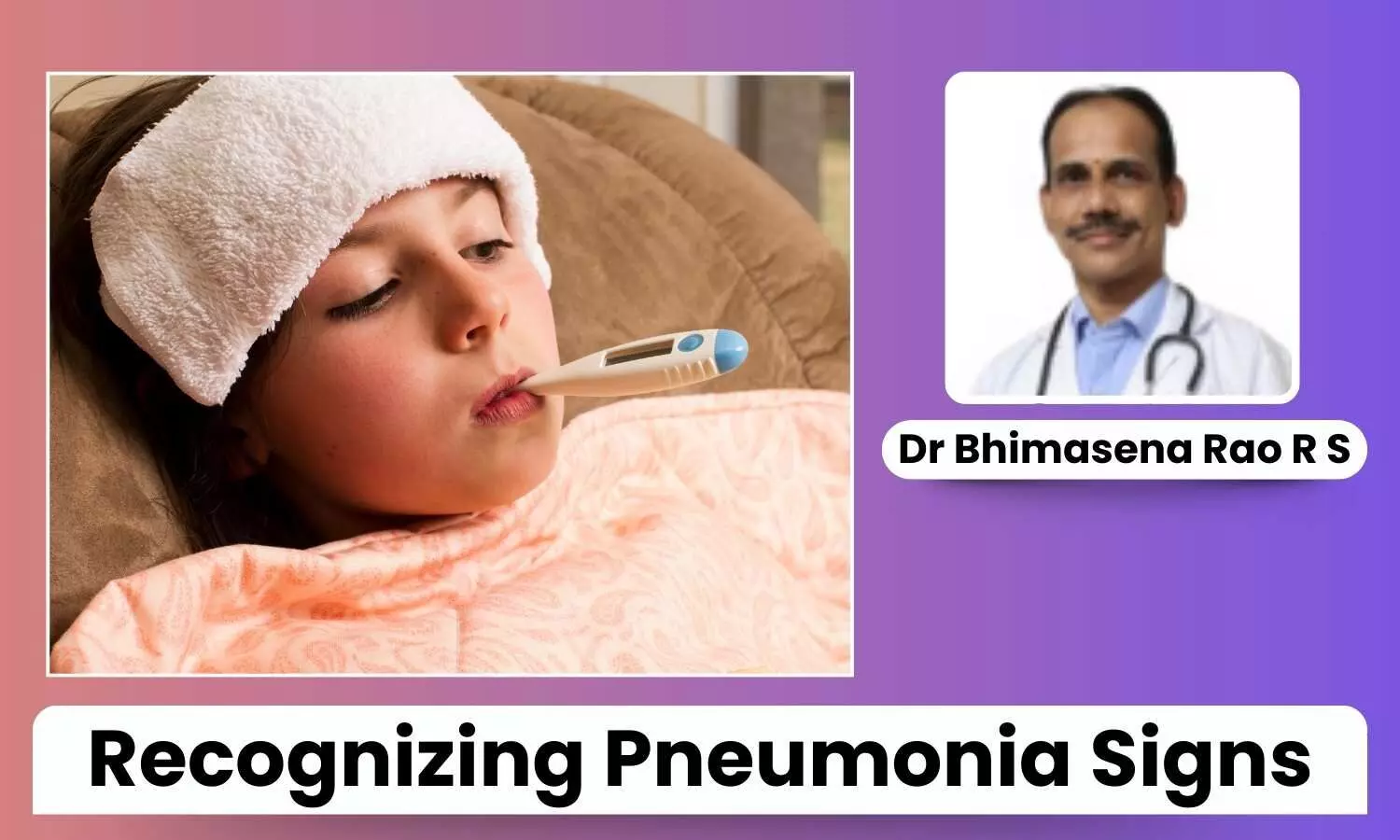Pneumonia Alert: Recognizing Signs and Symptoms in Kids and Adults - Dr Bhimasena Rao R S

Pneumonia is a serious and potentially life-threatening infection that affects millions of people worldwide each year. It occurs when the air sacs in the lungs become inflamed, making it difficult to breathe and oxygenate the body.
Pneumonia can affect anyone, regardless of age or health status, but certain groups, such as young children, older adults, and people with underlying medical conditions, are at higher risk.
Recognizing the signs and symptoms of pneumonia is crucial to ensure prompt medical attention and prevent complications.
Recognizing Pneumonia in Children
Children with pneumonia may exhibit different symptoms than adults, and it's essential to be aware of these signs to ensure timely medical attention.
Common symptoms of pneumonia in children include coughing, which may produce yellow or green mucus, fever, rapid breathing or difficulty breathing, chest pain or discomfort, vomiting or refusal to eat, irritability or restlessness, and pale or blue-tinged skin.
If you suspect your child has pneumonia, seek medical attention promptly.
Pneumonia Symptoms in Adults
Adults with pneumonia may experience a range of symptoms, including coughing, which may produce yellow or green mucus, fever, chills or sweating, shortness of breath or difficulty breathing, chest pain or discomfort, fatigue or weakness, headache or confusion, and coughing up blood or rust-coloured mucus.
If you're experiencing any of these symptoms, seek medical attention right away.
High-Risk Groups for Pneumonia
Certain groups are at higher risk of developing pneumonia, including children under the age of 2, adults over the age of 65, people with underlying medical conditions, such as heart disease, diabetes, or lung disease, people with weakened immune systems, such as those with HIV/AIDS or undergoing chemotherapy, and smokers or people exposed to second-hand smoke.
If you fall into one of these high-risk groups, take extra precautions to prevent pneumonia.
Preventing and Treating Pneumonia
Preventing pneumonia is key, and several measures can be taken to reduce the risk of infection.
These include getting vaccinated against flu and pneumococcal disease, practising good hygiene, avoiding close contact with people who are sick, quitting smoking or avoiding second-hand smoke, and managing underlying medical conditions.
If pneumonia is suspected, seek medical attention promptly.
Treatment typically involves antibiotics, rest, and hydration. In severe cases, hospitalization may be necessary to provide oxygen therapy, intravenous antibiotics, and close monitoring.
Pneumonia is a serious infection that can affect anyone, regardless of age or health status. Recognizing the signs and symptoms of pneumonia is crucial to ensure prompt medical attention and prevent complications.
By being aware of the risks and taking preventive measures, we can reduce the incidence of pneumonia and protect ourselves and our loved ones from this potentially life-threatening infection.


